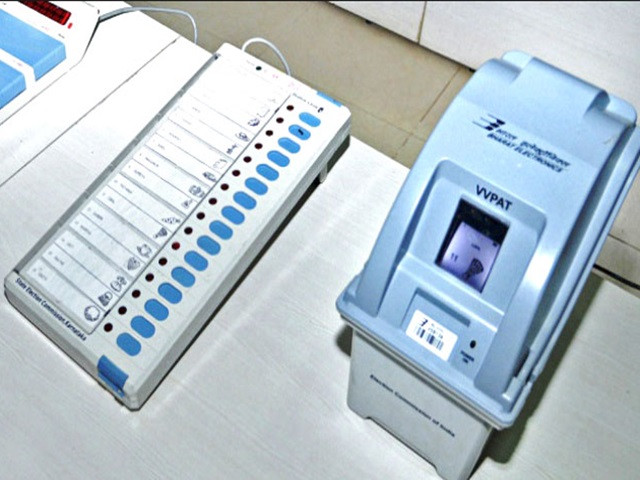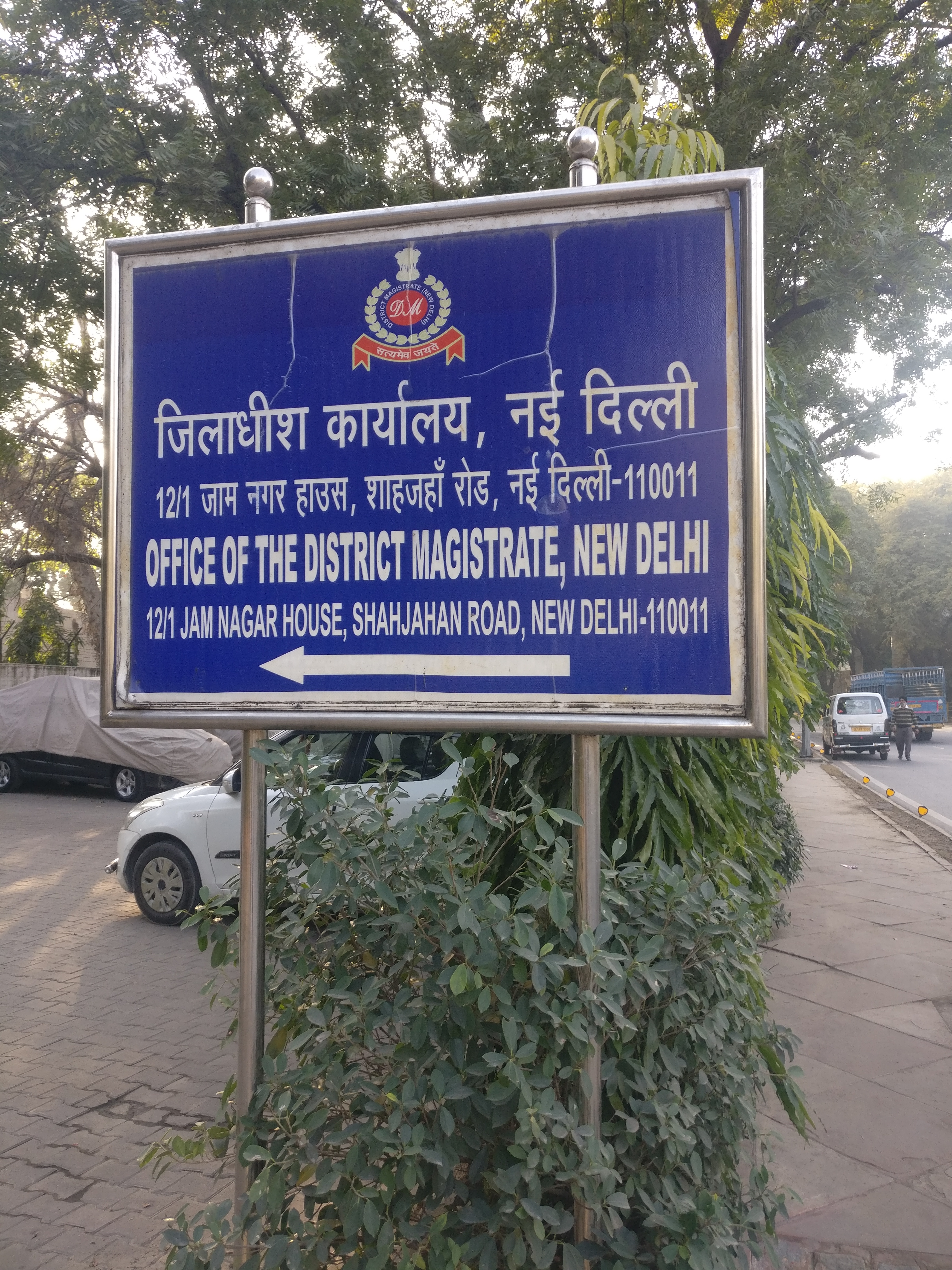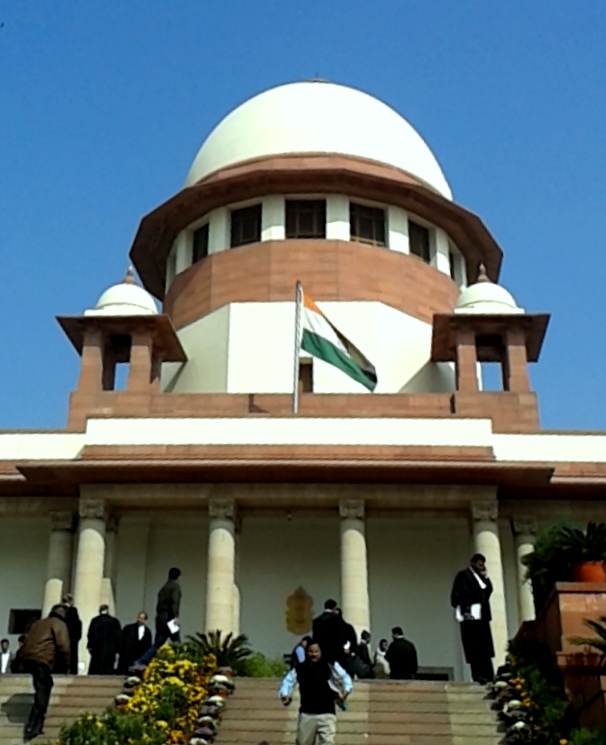|
Election Commission Of India
The Election Commission of India (ECI) is a constitutional body established by Constitution of India, the Constitution of the Republic of India empowered to conduct free and fair elections in the Republic of India. It is headed by a Chief Election Commissioner of India, chief election commissioner and consists of two other Election Commissioner of India, election commissioners as constituent members. Structure In 1950, the Election Commission of India was established as a single member body. As per ''The Election Commissioner Amendment Act, 1989'', the commission was made a multi-member body headed by a Chief Election Commissioner of India, chief election commissioner and two other Election Commissioner of India, election commissioners, who were appointed to the commission for the first time on 16 October 1989. On 1 January 1990, it reverted back to a single member body after the post of election commissioner was abolished, before being restored to the three member structur ... [...More Info...] [...Related Items...] OR: [Wikipedia] [Google] [Baidu] |
Government Of India
The Government of India (ISO 15919, ISO: Bhārata Sarakāra, legally the Union Government or Union of India or the Central Government) is the national authority of the Republic of India, located in South Asia, consisting of States and union territories of India, 36 states and union territories. The government is led by the president of India (currently ) who largely exercises the executive powers, and selects the Prime Minister of India, prime minister of India and other ministers for aid and advice. Government has been formed by the The prime minister and their senior ministers belong to the Union Council of Ministers, its executive decision-making committee being the Cabinet (government), cabinet. The government, seated in New Delhi, has three primary branches: the legislature, the executive and the judiciary, whose powers are vested in bicameral Parliament of India, Union Council of Ministers (headed by prime minister), and the Supreme Court of India respectively, with a p ... [...More Info...] [...Related Items...] OR: [Wikipedia] [Google] [Baidu] |
District Collector
The district magistrate, also known as the district collector or deputy commissioner, is a career civil servant who serves as the executive head of a district's administration in India. The specific name depends on the state or union territory. Each of these posts has distinct responsibilities, and an officer can assume all of these roles at once. The district magistrate is primarily responsible for maintaining law and order, while the district collector focuses on land revenue administration, and the deputy commissioner is in charge of overseeing developmental activities and coordinates government departments. Additionally, they also serve as election officers, registrar, marriage officer, licensing authority, and managing disaster responses, among other things. While the specific scope of duties may vary from state to state, they are generally similar. The district magistrate comes under the general supervision of divisional commissioner. History Warren Hastings introd ... [...More Info...] [...Related Items...] OR: [Wikipedia] [Google] [Baidu] |
Vice-President Of India
The vice president of India (ISO: ) is the deputy to the head of state of the Republic of India, i.e. the president of India. The office of vice president is the second-highest constitutional office after the president and ranks second in the order of precedence and first in the line of succession to the presidency. The vice president is also the ''ex officio'' chairman of the Rajya Sabha. Article 66 of the Constitution of India states the manner of election of the vice president. The vice president is elected indirectly by members of an electoral college consisting of the members of both Houses of Parliament and not the members of state legislative assembly by the system of proportional representation using single transferable votes and the voting is conducted by Election Commission of India via secret ballot. The vice president also acts as the chancellor of the Panjab University and Delhi University. Jagdeep Dhankhar of the Bharatiya Janata Party is the current vice pres ... [...More Info...] [...Related Items...] OR: [Wikipedia] [Google] [Baidu] |
State Legislative Councils Of India
The State Legislative Council, also known as the Vidhan Parishad or the Saasana Mandali, is the upper house in those states of India that have a bicameral state legislature; the lower house being the State Legislative Assembly. Its establishment is defined in Article 169 of the Constitution of India. Only 6 out of 28 states have a Legislative Council. These are Andhra Pradesh, Karnataka, Telangana, Maharashtra, Bihar, and Uttar Pradesh. No union territory has a legislative council. Member of the Legislative Council Members of a State Legislative Council (MLC) must be a citizen of India, at least 30 years old, mentally sound, not an insolvent, and must be an enrolled voter of the state. A member may not be a Member of Parliament and Member of the State Legislative Assembly at the same time. A member must not hold any office of profit under the Government of India or the Government of any state.The tenure of the MLCs is six years. One-third of the members of State Legislativ ... [...More Info...] [...Related Items...] OR: [Wikipedia] [Google] [Baidu] |
State Legislative Assemblies Of India
The State Legislative Assembly, also known as the Vidhan Sabha or the Saasana Sabha, is a legislative body in each of the states and certain union territories of India. Members of the legislative assembly are often directly elected to serve five year terms from single-member constituencies. A legislative assembly may be dissolved in a state of emergency, by the governor on request of the chief minister of the respective state or union territory, or if a motion of no confidence is passed against the ruling majority party or coalition. Definition and powers As per the Constitution of India, where there is a unicameral legislature, the legislative body is termed as the legislative assembly. In bicameral jurisdictions, there exists a State Legislative Council. The legislative assembly has the power to create or abolish the legislative council of the respective state or union territory by passing a resolution to that effect by a majority of not less than two-thirds of the members ... [...More Info...] [...Related Items...] OR: [Wikipedia] [Google] [Baidu] |
Parliament Of India
The Parliament of India (ISO 15919, ISO: ) is the supreme legislative body of the Government of India, Government of the Republic of India. It is a bicameralism, bicameral legislature composed of the Rajya Sabha (Council of States) and the Lok Sabha (House of the People). The president of India, President of the Republic of India, in their role as head of the legislature, has full powers to summon and prorogue either house of Parliament or to dissolve the Lok Sabha, but they can exercise these powers only upon the advice of the prime minister of India, Prime Minister of the Republic of India and the Union Council of Ministers. Those elected or nominated (by the president) to either house of the Parliament are referred to as member of Parliament (India), members of Parliament (MPs). The member of Parliament, Lok Sabha, members of parliament in the Lok Sabha are direct election, directly elected by the voting of Indian citizens in single-member districts and the member of Parliame ... [...More Info...] [...Related Items...] OR: [Wikipedia] [Google] [Baidu] |
Rajya Sabha
Rajya Sabha (Council of States) is the upper house of the Parliament of India and functions as the institutional representation of India’s federal units — the states and union territories.https://rajyasabha.nic.in/ It is a key component of India’s bicameral legislature at the national level, complementing the Lok Sabha (House of the People). While the Lok Sabha embodies the will of the people through direct elections, the Rajya Sabha serves as the voice of the states in the law-making process, reinforcing the federal character of the Indian Union.Basu, D.D. *Introduction to the Constitution of India*, LexisNexis As a permanent body that cannot be dissolved, the Rajya Sabha ensures continuity in governance and safeguards regional interests by offering a platform where state perspectives can be articulated on national legislation.Kashyap, Subhash C. *Our Parliament*, National Book Trust Its creation reflects the constitutional vision of balancing the unity of the nation w ... [...More Info...] [...Related Items...] OR: [Wikipedia] [Google] [Baidu] |
Chief Justice Of India
The chief justice of India (CJI) is the chief judge of the Supreme Court of India and the highest-ranking officer of the Indian judiciary. The Constitution of India grants power to the President of India to appoint, as recommended by the outgoing chief justice in consultation with other judges, (as envisaged in Article 124 (2) of the Constitution) the next chief justice, who will serve until they reach the age of 65 or are removed by the constitutional process of impeachment. As per convention, the successor suggested by the incumbent chief justice is most often the next most senior judge of the Supreme Court. However, this convention has been broken twice. In 1973, Justice A. N. Ray was appointed, superseding three senior judges, and in 1977 when Justice Mirza Hameedullah Beg was appointed as Chief Justice, superseding Justice Hans Raj Khanna. As head of the Supreme Court, the chief justice is responsible for the allocation of cases and appointment of constitutional benc ... [...More Info...] [...Related Items...] OR: [Wikipedia] [Google] [Baidu] |
Supreme Court Of India
The Supreme Court of India is the supreme judiciary of India, judicial authority and the supreme court, highest court of the Republic of India. It is the final Appellate court, court of appeal for all civil and criminal cases in India. It also has the power of Judicial review in India, judicial review. The Supreme Court, which consists of the Chief Justice of India and a maximum of fellow 33 judges, has extensive powers in the form of original jurisdiction, original, appellate jurisdiction, appellate and Advisory opinion, advisory jurisdictions. As the apex constitutional court, it takes up appeals primarily against verdicts of the List of High Courts of India, High Courts of various states and tribunals. As an advisory court, it hears matters which are referred by the President of India#Judicial powers, president of India. Under judicial review, the court invalidates both ordinary laws as well as Amendment of the Constitution of India, constitutional amendments as per the basi ... [...More Info...] [...Related Items...] OR: [Wikipedia] [Google] [Baidu] |
The Economic Times
''The Economic Times'' is an Indian English-language business-focused daily newspaper. Owned by The Times Group, ''The Economic Times'' began publication in 1961 and it is sold in all major cities in India. As of 2012, it is the world's second-most widely read English-language business newspaper, after ''The Wall Street Journal'', with a daily readership of over 800,000. According to the Audit Bureau of Circulations (India), Audit Bureau of Circulations, the newspaper's Print circulation, circulation averaged 269,882 copies during the latter half of 2022. It is published simultaneously from 14 cities: Mumbai, Bangalore, Delhi, Chennai, Kolkata, Lucknow, Hyderabad, Jaipur, Ahmedabad, Nagpur, Chandigarh, Pune, Indore, and Bhopal. Its main content is based on the Economy of India, Indian economy, international finance, share prices, prices of commodities as well as other matters related to finance. This newspaper is Publishing, published by Bennett Coleman & Co. Ltd, Bennett, Cole ... [...More Info...] [...Related Items...] OR: [Wikipedia] [Google] [Baidu] |
Union Council Of Ministers
The Union Council of Ministers is the Cabinet (government), principal executive organ of the Government of India, which serves to aid and advise the President of India in execution of their functions.Article 74 of the ''Constitution of India'' It is chaired by the Prime Minister of India and consists of the heads of each of the executive government ministries. Currently, the council is headed by and consists of 71 fellow members. The council is answerable to the Lok Sabha. A smaller executive body called the Union Cabinet is the supreme decision-making body in India; it is a subset of the Union Council of Ministers who hold important portfolios and Ministry (government department), ministries of the government.Wikisource: Constitution of India/Part XVIII Regulation Pursuant to s: Constitution of India/Part V, Article 75(3), the Council of Ministers is responsible collectively to the lower house of the Parliament of India, Indian parliament, called the Lok Sabha (House of t ... [...More Info...] [...Related Items...] OR: [Wikipedia] [Google] [Baidu] |
Lok Sabha
The Lok Sabha, also known as the House of the People, is the lower house of Parliament of India which is Bicameralism, bicameral, where the upper house is Rajya Sabha. Member of Parliament, Lok Sabha, Members of the Lok Sabha are elected by an adult universal suffrage and a first-past-the-post system to represent their respective List of constituencies of the Lok Sabha, constituencies, and they hold their seats for five years or until the body is dissolved by the president of India on the advice of the Union Council of Ministers. The house meets in the Lok Sabha Chambers of the New Parliament House, New Delhi. The maximum membership of the House allotted by the Constitution of India is 552. (Initially, in 1950, it was 500.) Currently, the house has 543 seats which are filled by the election of up to 543 elected members. Between 1952 and 2020, Anglo-Indian reserved seats in the Lok Sabha, two additional members of the Anglo-Indian community were also nominated by the President ... [...More Info...] [...Related Items...] OR: [Wikipedia] [Google] [Baidu] |






